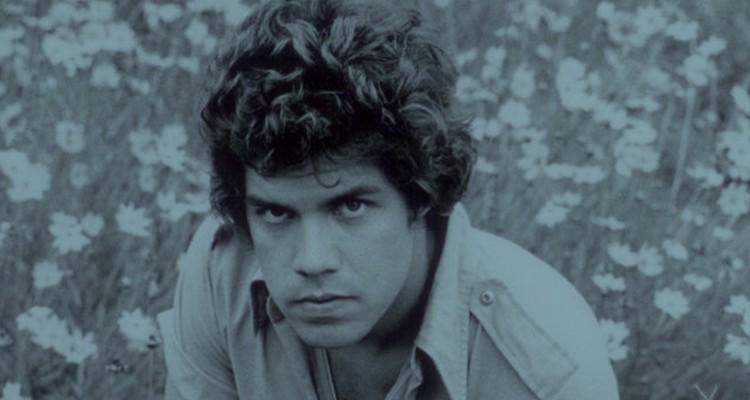
En nuestras vidas ya todos hemos bajado
a uno que otro río
y hablado con aquellos que raramente hablan
les contamos sobre los humos negros de nuestros sueños
raíces lentas ardientes y adormecidas
y el martillo colgando de una rama
y ellos continúan clavando largas uñas
en la madera dañada de su barco
de cualquier cosa hacen un puerto
por una noche sujetarán la cuerda
se sientan sobre baldes
cerca de las ruinas circulares del agua
comiendo pescado que cocinan en vino
uno tiene barriga y guarda pequeños patos bajo la camisa
uno lleva una hermosa chalina
afirma que la luna engaña
bajo el parche que le cubre el ojo izquierdo
rosas salvajes les cubren las botas
que sin andar hicieron camino
medio bajo el agua hay una chimenea
madera de deriva y remos rotos y señuelos extraviados
flotando en el humero
la corriente subiéndolos por la chimenea como humo
allí se alza sola como árbol de piedra
la casa habiendo ardido
antes de que el río creciera
antes de que yo caminara sobre estos diques
largas tumbas de mi padre
que él mismo levantó como faraón
seguí bajando por ellos
extendiendo ambos brazos delante de mí como un sonámbulo
extendiendo las manos
intentando calentarlas en fogatas extinguidas hace tiempo
el suelo podría haber ser nieve
miré hacia la pronunciada pendiente de esos días
esquiador que se prepara para un salto
yo sí tenía cosas que decir
Fire Left by Travellers
Before in our lives we have all gone down
to some river or another
and spoken with those who don’t often speak
we tell them about the black fumes of our dreams
roots smoldering and asleep
and the hammer hanging on the branch
and they go on sinking long nails
into their boat’s damaged wood
they make a harbor out of anything
they will hold a rope for a night
they sit on buckets
near the water’s circular ruins
eating fish cooked in wine
one has a belly and keeps young ducks under his shirt
one wears a beautiful scarf
he claims the moon is a liar
under the patch over his left eye
briars take over their boots
which took journeys without walking
half under water there’s a chimney
driftwood and broken oars and lost lures
floating in the flue
the current drawing them up the fireplace like smoke
there it stands alone like a stone tree
the house having burned
before the river rose
before I walked down these levees
my father’s long graves
which he raised like a pharaoh
I kept coming down them
holding both arms before me like a sleepwalker
holding out my hands
trying to warm them on campfires long gone
sod might as well have been snow
I looked down the steep slope of those days
a skier getting ready for a jump
I had things to say
Frank Stanford (1948–1978) was a prolific American poet known for his originality, sensual imagery, and bare emotional earnestness. He grew up in Mississippi, Tennessee, and then Arkansas, where he lived for most of his life and wrote his poetry. He attended the University of Arkansas in 1966–70 and studied business for a semester before switching to English literature and poetry but never graduated. Mill Mountain Press published five chapbook-length manuscripts by Stanford: The Singing Knives (1971), Shade (1973), Ladies from Hell (1974), Field Talk (1975), and Arkansas Bench Stone (1975). The latter four books included drawings by his second wife, the artist Ginny Stanford. During the 1970s Stanford supported himself (and his second wife) by working as an unlicensed land surveyor. In 1976 Stanford and C. D. Wright established the independent publishing operation Lost Roads Publishers to feature the work of talented poets without ready access to publishing. That same year Irving Broughton published Stanford’s Constant Stranger (Mill Mountain), followed by the magnum opus The Battlefield Where the Moon Says I Love You (Mill Mountain/Lost Roads, 1977), not bound until after Stanford’s death, and the posthumous Crib Death (Ironwood Press, 1978). Stanford committed suicide in 1978 at the age of twenty-nine. The book What About This: Collected Poems of Frank Stanford (Copper Canyon, 2015), edited by Michael Wiegers, was a finalist for the National Books Critics Circle Award.
Patricio Ferrari is a poet, polyglot literary translator, and editor. His most recent editions and translations include The Galloping Hour: French Poems by Alejandra Pizarnik (with Forrest Gander; New Directions, 2018) and The Complete Works of Alberto Caeiro by Fernando Pessoa (with Margaret Jull-Costa; New Directions, 2020). His translation of Field Talk by Frank Stanford (with Graciela Guglielmone) is forthcoming with Pre-Textos in 2023. His work appears in The New Yorker, The Paris Review, Southwest Review, Buenos Aires Poetry, and Words Without Borders, among others. Ferrari resides in New York City and teaches at Rutgers University. He has an ongoing collaboration with the Endangered Language Alliance, a nonprofit organization focused on linguistic diversity within urban areas worldwide.
Graciela Guglielmone is an educator, translator, and founder of the San Patricio Language Institute in Merlo, Argentina, where she is currently director emeritus. Guglielmone regularly collaborates on literary projects with her son, Patricio Ferrari, with whom she has translated a wide range of contemporary Anglophone poets as well as Language Matters with Bob Holman, a documentary narrated by poet Bob Holman on the importance of preserving languages in the modern age. Their most recent book of translations from English is Verde amargo by Martin Corless-Smith (Buenos Aires Poetry, 2022). Guglielmone lives in Merlo with her husband.
